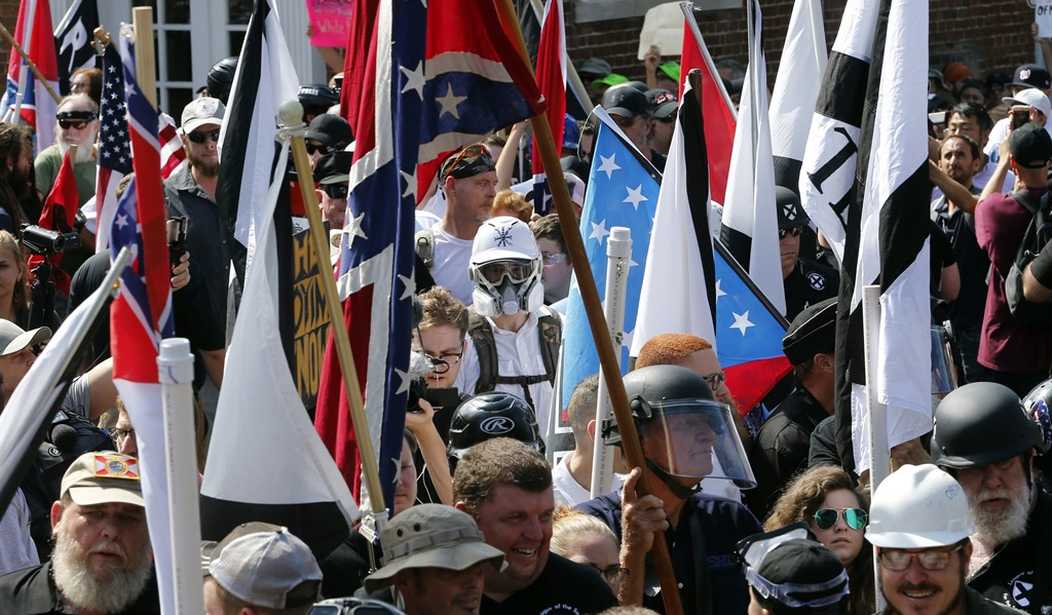The birth of a child is a happy occasion that inspires joy and celebration. So momentous is the day that the person born and those around him or her will commemorate it annually for a lifetime. But birth itself is an arduous, bloody and sometimes fatal event. No new life comes into being without terror, pain and struggle.
The United States was born of such struggles on a mass scale. When Americans formed a nation and claimed their independence, they met with ferocious opposition from their rulers, who were willing to kill thousands of people to foil the change. The British king and Parliament did not quietly accede to reason. That is rarely how the evils of this world are undone.
In 1783, Thomas Jefferson, hoping that his home state of Virginia would hold a special convention to approve a new state constitution, took it on himself to draft one. It included a provision gradually but explicitly abolishing slavery. Anyone born after Dec. 31, 1800, it said, is "hereby declared free."
His scheme wasn't adopted, and the sage of Monticello failed in other attempts to curb slavery -- even while owning slaves. No one knew better than Jefferson the grotesque contradiction between the promises of the new republic and the inferior status it assigned to black people. No one knew better than he the anguish, strife and violence that would accompany any progress in overcoming that original sin.
Two hundred thirty-four years later, events in his hometown provided a reminder of how far we have to go in that task -- and how far we have come. The vicious collection of white racists who gathered there on Saturday were the heirs of Virginians who could have peacefully phased out human bondage. Instead, those early Americans clung to the peculiar institution -- only to be forcibly deprived of it by a war that drenched the state in gore.
Recommended
What Jefferson hoped to end by the voluntary choice of white men, Abraham Lincoln found could be uprooted only with relentless, overwhelming force. It might be God's will, he said in his second inaugural address, that slavery survive "until every drop of blood drawn with the lash shall be paid by another drawn with the sword."
The hatred and havoc that erupted just miles from Jefferson's Monticello were a reminder that every push toward enlightenment elicits spasms of reaction. The white nationalists who gathered to protest the removal of a statue of Robert E. Lee from a public park were aggrieved that they no longer enjoy being members of the ruling race.
That status carried great privileges. It's no surprise that these modern misfits bitterly resent the changes that undid it -- or that they are willing to resort to intimidation and brutality to restore it.
They are fantasizing to think they can succeed. But their loss of power and popular support has not made them more open to unwanted changes. If anything, the more they are outnumbered the more visceral their fear and the more desperately they cling to any vestige of the beloved past.
They lost the Civil War. They lost the institution of black bondage. They lost the exclusivity of citizenship. They lost the principle of white supremacy. They lost the battles against integration of the military, swimming pools, restaurants, schools and marriage. They saw a black man elected twice to the presidency.
But Donald Trump exploited their resentments for his own gain and led them to believe that they could resurrect a distant era before they lost so much ground -- that he would "make America great again." As he learned this week, though, his pandering to them means alienating most other Americans.
By inciting the racist right to mobilize, he has awakened its vastly more numerous opponents. He has also made it much harder for his more moderate white supporters to overlook his darkest impulses.
Those impulses were blindingly evident in his Tuesday news conference, where he seemed far more concerned about protecting Confederate statues than protecting African-Americans and other minorities from discrimination and violence.
His coarse sentiments heartened David Duke and his allies, who feel empowered by Trump. Among blacks and other minorities, there is legitimate fear that the mayhem in Charlottesville was just the beginning of a broader backlash against equality and inclusion.
That turmoil may look like the beginning of something big for the cause of white nationalism. But those were not birth pangs. They were death throes.
























Join the conversation as a VIP Member